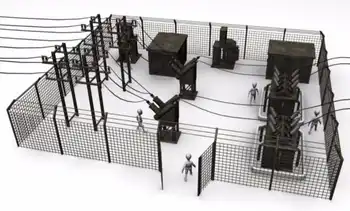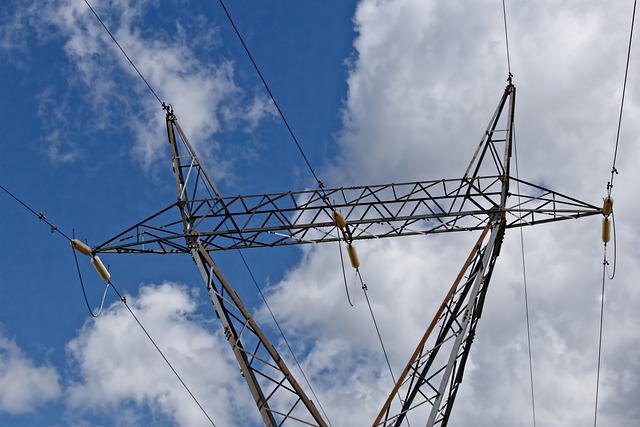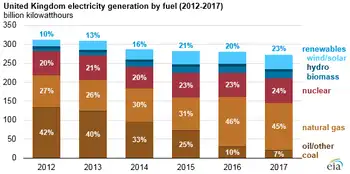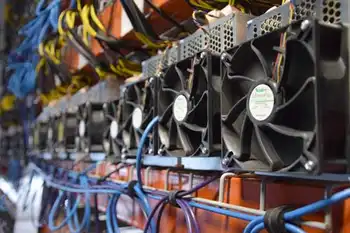NRC a policeman or salesman?
WASHINGTON DC - The Nuclear Regulatory Commission exists to police, not promote, the domestic nuclear industry — but diplomatic cables show that it is sometimes used as a sales tool to help push American technology to foreign governments.
The cables, obtained by WikiLeaks and provided to Reuters by a third party, shed light on the way in which U.S. embassies have pulled in the NRC when lobbying for the purchase of equipment made by Westinghouse and other domestic manufacturers.
While the use of diplomats to further American commercial interests is nothing new, it is far less common for regulators to be acting in even the appearance of a commercial capacity, raising concerns about a potential conflict of interest.
The subject is particularly sensitive at a time when there are concerns about whether the operator of the stricken Fukushima nuclear power plant, which was designed by U.S. conglomerate General Electric Co., had been properly supervised by the NRC's equivalent in Japan.
The NRC's own chairman has said that in the nuclear business, avoiding conflicts of interest is paramount.
"The important point is that all countries should strive to maintain a strict independence between the regulator and the industries that it oversees," Gregory Jaczko said in an April 2010 speech to an international forum in Seoul.
But the cables — from 2006 to early 2010 — show that the NRC's role in promoting its regulatory model around the world can easily turn it into an advocate for U.S. nuclear technology, whether its officials realize it or not.
For example, an unclassified January 2009 cable from the U.S. embassy in Kuala Lumpur noted that the Malaysian government, as it pursued a nuclear policy, preferred to work with contractors the NRC had already approved.
The diplomatic corps there was quick to point out how that might be used to financial advantage.
The stance "places the U.S. Government and U.S. companies in a favorable position to build stronger relations with both representatives and Government of Malaysia officials," the embassy said.
In other countries the message was even more pointed, as in Italy in late 2009. Former NRC Chairman Dale Klein, then still a commissioner, visited the country to discuss nuclear cooperation as the government looked to restart the country's civilian nuclear program and build as many as 10 new plants.
Klein was there to talk regulation, but he also unwittingly figured in the embassy's efforts to promote American vendors.
"Commissioner Klein's visit gave additional support to U.S. nuclear energy companies. A embassy co-sponsored public forum on nuclear energy featuring Commissioner Klein as keynote speaker and U.S. companies as panel members attracted a large audience of senior public and private Italian officials and local press coverage," a cable said.
Klein, now a vice chancellor at the University of Texas System and a board member at two utility companies with nuclear operations, said that while he was a firm believer in the NRC playing a more international role, commercial advocacy was never part of his job.
"As a regulator we would never take a position of recommending one reactor over another. The NRC's position was safety and security, and you can get the safety and security in a variety of ways," Klein said. "I never recall having been asked the question of what reactor should a country use."
The NRC was created in 1975 because its predecessor, the Atomic Energy Commission, had been criticized for conflicts in both policing and promoting an industry. The NRC was tasked with regulation, while a separate agency, later folded into the Energy Department, promoted nuclear power.
It's common for NRC staff and commissioners to be asked to attend international meetings, but they accept only invitations where they can press for strong safety regulations, said Margie Doane, director of the NRC's international programs, who declined to comment directly on the cables.
"You want to talk about safety right at the very inception of someone's thinking about nuclear power," Doane said.
"As long as we make sure our role is only safety and only regulation, it's a very important aspect, and it doesn't have anything to do with whether they buy U.S. technology or not," she said. "If we're invited into something which looks promotional, we make sure that there's a good opportunity for us to get the safety message out, and that it's going to be understood in the right way."
The fear for diplomats is that U.S. equipment companies need government help, lest they be elbowed aside by foreign state-owned competitors such as France's Areva.
The main concern is for the two nuclear reactor builders most closely tied to the United States — General Electric Co.'s nuclear joint venture with Japan's Hitachi Ltd and Westinghouse Electric Co, the U.S.-based nuclear reactor builder 77 percent owned by Japan's Toshiba Corp. and 20 percent owned by Shaw Group.
That beat-the-French theme comes up over and over again in cables from around the world — embassies noting with a sense of urgency that foreign competitor X is already on the ground meeting with government officials, and U.S. interests need to act fast at the highest levels to counteract the threat.
"U.S. company representatives and their Italian allies are apprehensive that absent high-level U.S. lobbying, French pressure will push the decision toward a purchase of their technology. We clearly need to engage at the highest level, given the stakes involved... billions of dollars in contracts and substantial numbers of high-technology jobs could be involved," a cable from the Rome embassy said in February 2009.
In some cases, NRC officials, while not lobbying for American companies, may have smoothed their way. In February 2007, former NRC commissioner Jeffrey Merrifield visited Hanoi to discuss cooperation on nuclear regulation with Vietnam.
According to the embassy, the Vietnamese told Merrifield they had already been approached by French and Japanese companies about a proposed nuclear plant scheduled to start up by 2020. Merrifield, the embassy said, responded in kind that the Vietnamese should expect to hear from American firms like GE and Westinghouse as well.
A spokeswoman for Merrifield's current employer, Shaw Group, was not available for comment.
That push for American counter-action sometimes resulted in overt lobbying, but sometimes the response was more subtle. One striking example came from South Africa in November 2008.
The embassy in Pretoria, so the story goes, helped the American Society of Mechanical Engineers hold a workshop on nuclear codes and standards in Johannesburg. The workshop was sponsored by Westinghouse and Areva, and featured speakers including NRC engineering officials.
While the official purpose of the event was to promote ASME standards to South African suppliers looking to participate in the global nuclear supply chain, the embassy was not shy about explaining its real purpose.
But the embassy indicated there was another purpose: "The unofficial purpose of the workshop was to support Westinghouse's bid as a global supplier committed to localization in South Africa and the ASME standard in its global supply chain, although ASME was technically neutral on the bidding competition," it said.
Their argument was subtle but unmistakable - standards are important, and Westinghouse uses a key international standard, but Areva doesn't, so go Westinghouse instead.
An ASME spokesman declined to comment.
One NRC critic said the very idea of the commission was to divorce the commercial from the professional.
"The whole point in creating the NRC was to get out of the business of looking like they were in the business of promoting anything other than safety," said Henry Sokolski, a conservative nuclear proliferation expert.
"That they should somehow be seen as advantageous to making people comfortable about getting into the business so to speak is itself an abomination. They should be allergic to that," Sokolski said.
Related News

Investor: Hydro One has too many unknowns to be a good investment
TORONTO - Hydro One may be only half-owned by the province on Ontario but that’s enough to cause uncertainty about the company’s future, thus making for an investment risk, says Douglas Kee of Leon Frazer & Associates.
Since its IPO in November of 2015, Hydro One has seen its share of ups and downs, mostly downs at this point. Currently trading at $19.87, the stock has lost 11 per cent of its value in 2018 and 12 per cent over the last 12 months.
This year has been a turbulent one, to say the least, as newly elected Ontario premier Doug Ford…




